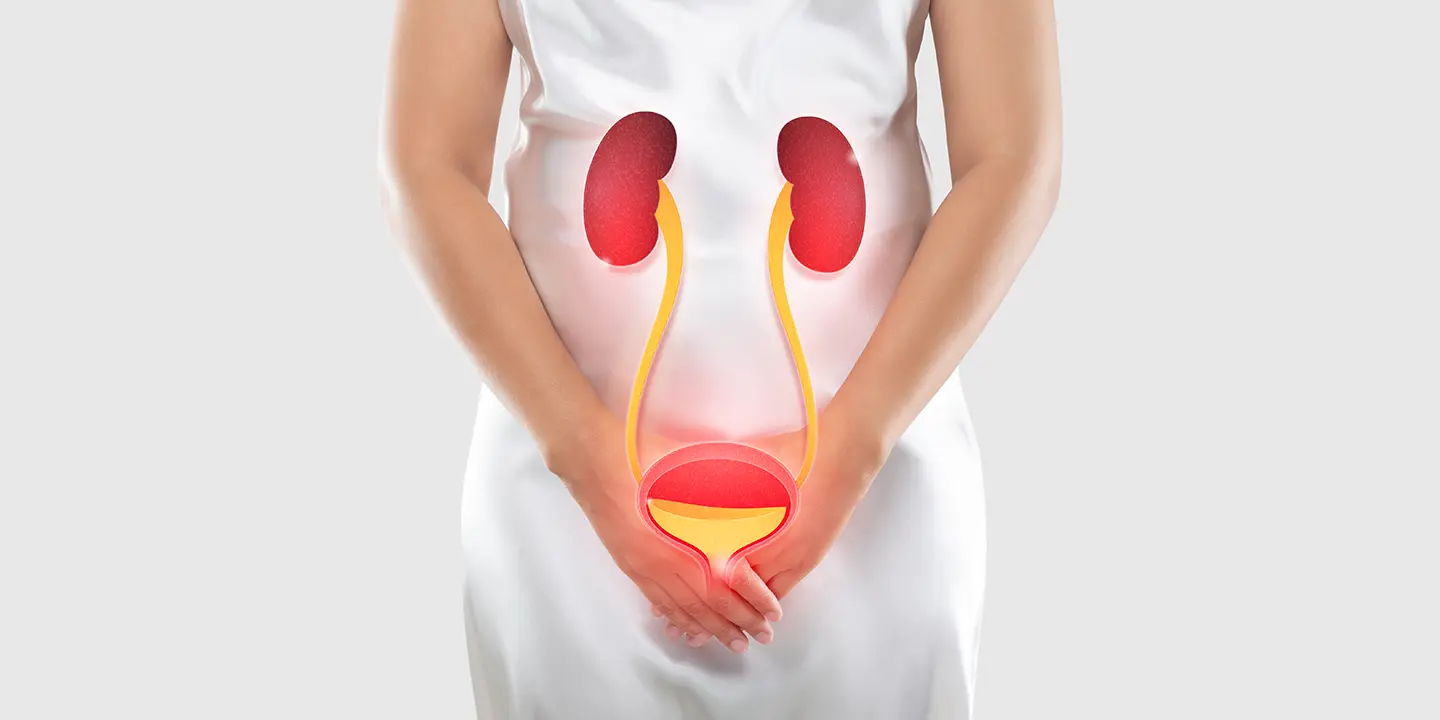
Risk content: Backache and pain in the bladder are among the common complaints for a few women. However, if they are additionally experiencing pain in the pelvic area, they must seek help from an expert gynaecologist as it can be related to UTI symptoms that many of you are unaware of. As per research, UTIs are considered the most common and frequently occurring bacterial infections that women face. Among all, sexually active women are more prone to Urinary tract infections; thus, keeping a check on safe sex practices will help you prevent the condition. Suppose you experience any UTI symptoms and believe you may have it is best to contact a specialist for medical intervention. The best in the field are the expert gynaecologist at QUEEN’s Gynaecology and you can avail their services by making an appointment. Once diagnosed on time, the condition can be treated with medications, and there are many preventive measures that the expert gynaecologist will discuss that make complications less likely.
In this Article
- 1 Overview
- 2 Urinary Tract infection – a common infection that should not be ignored
- 3 Who can be at great risk of UTIs?
- 4 Symptoms of UTIs
- 5 Causes of UTIs
- 6 The dangers of ignoring UTIs
- 7 Diagnosis of UTI
- 8 Treatment of UTIs – Antibiotics, medications, and home remedies
- 9 Ways to prevent UTIs
- 10 How QUEEN’s gynaecology can help you treat urinary tract infections?
- 11 Conclusion
Overview
Also known as UTI infection, urinary is an infection of the urinary system comprising the bladder that collects urine and the urethra. This tube carries out urine from the bladder of the human body. According to statistics, women are more prone to Urinary tract infections than men; thus, they must take care of themselves more. It is also very important to treat it as soon as possible, as a UTI can spread and might even cause a kidney infection if left untreated. If left untreated, the harmful bacteria that cause the UTI infection can eventually permanently harm the kidneys; thus, it is best to get checked by an expert gynaecologist. Getting yourself checked is the best way to determine the infection, which can be treated with the right antibiotics.
Related Blog – Sexually Transmitted Infections (STIs): Types, Symptoms And Treatment
Urinary Tract infection – a common infection that should not be ignored
Various bacteria can cause UTIs, and not every antibiotic can effectively treat them. UTIs are also termed bladder infections and are very common, especially in women. It is common but serious and often painful. UTI is an infection that can happen in any part of the urinary system, comprising the kidneys, ureters, bladder, and urethra; however, it is most common in the bladder. Urinary tract infections mean that a person has an infection in the urinary system. However, many feel embarrassed if they experience UTI symptoms that affect the genitals, but it is a common infection and can be treated well. Gynecologist will help you treat it by prescribing antibiotics, and your symptoms will disappear soon. It is best to follow your doctor’s instructions and take a full course of antibiotics to ensure that UTI is gone.
Who can be at great risk of UTIs?
Women get UTis about 30 times more than men, and those who get a UTI will get one at least once within six months. Women are more prone to the condition because their urethra, a tube from the bladder to the urine pipe, is shorter in comparison to men. This makes an easy path for bacteria to enter the bladder, and also, women’s bladder opening is much close to both vagina, and the anus, which is one of the main UTI causes. You are at great risk of UTI if :
- You are a woman who is more sexually active because sexual activity can move germs that cause infection from other areas like the vagina.
- If you use a diaphragm for birth control as these are creams that kill sperm with a diaphragm or condoms.
- If you are pregnant because, in this phase, hormones can alter bacteria in the urinary tract increasing the chance of UTI infection .
- If you are going through menopause because after it, loss of the hormone estrogen causes the vaginal tissue to become dry and thin and which makes it easier for bacteria to cause UTIs.
- If you have diabetes because it can lower immune system defense and cause nerve damage, making it hard to empty the bladder completely.
Symptoms of UTIs
Now that you are clear about the UTI meaning, it can also be classified as simple or complicated. A simple UTI infection only affects the bladder, and a complicated UTI is a resistant infection that requires you to book an appointment with an expert gynaecologist to get treated as soon as possible. QUEEN’s Gynaecology will help you with the treatment of UTIs; schedule your visit to get a proper examination and tailored treatment by the best team of doctors at Queen’s Gynecology. If a person has a UTI infection, the lining of the bladder and urethra become red, which can cause pain in the abdomen or pelvic area and also in the lower back. The condition usually makes you feel like urinating more often, and while urinating, you feel burning or pain. There are many more Urinary tract infection symptoms that you should not ignore :
- Pain or burning sensation while urinating
- Fever, tiredness, and even shakiness
- An urge to urinate more often
- Pressure in your lower belly
- Urine that smells bad or looks cloudy
- Pain in your lower back or side below the ribs
It is necessary to contact the expert gynaecologist if :
- You have symptoms of an upper UTI
- The symptoms are getting worse
- The symptoms are not improve and get worse after a few days
- You get UTIs frequently and are more prone
- Your symptoms come back aga post-treatment
Causes of UTIs
Many types of bacteria live in the area around the vagina and also on your skin; these bacteria may get into urine from the urethra and travel into the bladder, and even travel to the kidneys as well. Bacteria in the urinary tract can create a problem for you. There are many who are more prone to the condition, especially women, because women have shorter urethras than men, so bacteria have an easy path to reach the bladder. There are many UTI causes explained below :
- If you have health conditions that obstruct your urinary tract, like kidney stones
- If you have difficulty emptying your bladder
- If you use a contraceptive diaphragm
- If you have diabetes
- If you have an enlarged prostate gland in men
Related Blog – Menstrual Disorders — Types, Causes, Symptoms, Diagnosis, and Treatment
The dangers of ignoring UTIs
UTI infection is a bacterial infection that can be anywhere in your urethra, bladder, kidney, or ureters. It is a very common infection, and one of the primary UTI symptoms is pain in the lower abdomen or pelvic area. Most UTIs do not pose any serious threat, and mild infections also clear up without any medications, but you should not take it lightly. You must not ignore the Urinary tract infection symptoms as it can cause a few serious complications if the infection spreads. The expert team of QUEEN’S Gynecology is equipped to diagnose as well as prescribe treatment so that you can get back to your normal life quickly. Thus it is best to discuss with our expert gynaecologist to prevent the serious complications associated with UTIs. There is always a level of bacteria in your body that can be trapped and cause an infection to develop. UTIs develop when too many bacteria collect somewhere in the urinary system, and it can be risky to ignore the symptoms:
- UTI is painful and can be significant; you might feel pain in the pelvic area, bladder, abdomen, or lower back. If you try to ignore the symptoms and delay the treatment, the infection can get worse, and as it worsens, your symptoms also worsen and can create many other health issues.
- In some cases, ignoring UTI infection can spread to other parts of the body and pose dangerous health risks. An untreated UTI can also cause severe damage to the kidneys and can lead to permanent kidney damage, which is considered a life-threatening complication.
- If you are pregnant, avoiding the symptoms can increase your risk of premature birth, and your baby can have a low birth weight.
- Having a Urinary Tract Infection can increase your future risk of having it again. Some people develop chronic UTIs, which come again and again after treatment.
Diagnosis of UTI
Before the treatment of UTI starts, the first step is a comprehensive diagnosis, as gynaecologists need to identify which kind of bacteria is causing the infection, as your treatment will be done accordingly. Some most effective ways to diagnose UTI are:
- Urinalysis is a urine test to examine the presence of bacteria and red and white blood cells.
- Urine culture – It is the test done to determine the type of bacteria that is the main UTI causes.
- Imaging test: It is the CT Scan and ultrasound that is done to help identify the reasons why infection is happening and to know the exact cause.
- Cystoscopy: IT is often the last resort to explore inside the bladder and urethra for blockages, signs of infections, etc.
Treatment will start after all the tests are done, and the most common treatment for the condition is antibiotics prescribed by your gynaecologist. It is mandatory to do the full prescribed course of antibiotics for urine infection treatment even if the symptoms are better.
Treatment of UTIs – Antibiotics, medications, and home remedies
Treating Urinary tract infection with antibiotics is the best option that an expert gynaecologist will prescribe. Your health care provider will determine your health and the type of bacteria in your immune system and accordingly prescribe you medication. If you are more prone to UTIs and get them often, then your dynamic will give you low-dose antibiotics for a short period of time to prevent the infection from coming back; the expert may also recommend caution to treat frequent UTIs because the body can develop resistance to antibiotics and you can get other types of infections. Which medication your doctor will prescribe will depend upon whether your infection is complicated or uncomplicated. Uncomplicated means that the urinary tract is normal and complicated means that your urinary tract might have a disease or another health issue. You can have many issues like
- Narrowing of bladder
- Narrowing on the urethra
- Blockage like a kidney stone
- Enlarged prostate in men
- You might have a urinary fistula
To treat complicated UTI infections, your gynaecologist may prescribe more antibiotics. The health expert will let you know the duration until you have to take the antibiotics; some may need to take it for about 7 to ten days or even more.
Related Blog – Pelvic Pain During Pregnancy: Causes And Treatments
Ways to prevent UTIs
Your gynaecologist will help with the prevention of UTis if you are more prone to it. Expert gynaecologists at QUEEN’S Gynecology advise patients to do the following lifestyle changes to help prevent UTI infection:
- Stay hydrated
Staying hydrated and drinking fluids is the key to preventing UTI infection and managing UTI symptoms; drinking and staying hydrated will help keep bladder tissue hydrated and healthy. It helps to dilute urine and lowers the bacteria concentration.
- Empty your bladder
Regularly emptying your bladder ensures urine will not stay in your bladder for too long. Bacteria need a wet environment to grow, thus, urinating more often to empty your stomach.
- Urinate soon post-sex.
Intercourse can accuse bacteria of getting close to the urethra, and urinating just after it can remove some bacteria before it causes an infection.
- Wipe properly
Post urinating, it is mandatory to stay clean and thus wipe front to back as it will help percent bacteria in the anal region from spreading to the vagina.
- Change your birth control.
Many people have an increased risk of developing urinary tract infections because they use a diaphragm for birth control. It is best to talk to your doctor about other birth control options. However, it is possible that they advise you to change your option. Also, try to use water-based lubricants during intercourse, and you must also avoid spermicide.
- Change your clothing type.
Tight-fitting clothes can cause a moist environment that helps bacterial infection grow; wear loose-fitting clothes and cotton underwear to prevent moisture around the urethra.
How QUEEN’s gynaecology can help you treat urinary tract infections?
If you are suffering from frequent, painful urination and lower back and abdominal pain, then QUEEN’s Gynecology is here. Our on-board expert gynaecologist team is ready to help you with diagnostic care and treatment options. At Queen’s, you will get the best expert team to counsel you about the best options for you and your health. Untreated UTIs can spread further into the urinary tract, leading to more severe infections. Schedule your appointment with Queen’s Gynecology to determine the UTI infection and to monitor the organs that could get infected or damaged, like kidneys which are also part of the urinary tract. It is best to schedule an appointment right away if you are experiencing UTI symptoms listed above. We offer extensive care with efficient and effective treatment protocols for optimal health.
Related Blog – Endometriosis: Causes, Symptoms, Diagnosis & Treatment
Conclusion
Urinary tract infections are common but painful and uncomfortable, which affect one’s quality of life. If you experience any of the UTI symptoms, then it is best to consult the gynaecologist because the idea of waiting for a natural cure is wrong. The symptoms can get worse and cause many other health issues and complications; QUEEN’s Gynaecology can help you to diagnose, treat and prevent UTI infections as we have an expert team of doctors that can provide you with thorough knowledge of current health status and provide medications as per the requirements. However, it is also common for people to have bacteria in the urine but not experience any symptoms, and thus, in these cases, there is no need for treatment; it is best to discuss with gynaecologists about UTIs, and also, it’s best to get yourself checked on time. You must seek medical advice if you develop any symptoms like back pain in the back, chills, fever, etc.
FAQs
UTis is a common infection that can develop within 24 hours after intercourse; but they are not actually a sexually transmitted diseases. The bacteria that are the main cause of UTIs are not caught during intercourse; instead, the fiction associated with sex helps these bacteria to make their way into the vagina.
UTIs are also common infections in pregnancy. They need to be trea6 before it starts to affect the mother and the child. To avoid the complications experienced gynaecologist will prescribe you antibiotics that are safe during pregnancy.
Urinary tract infections and bladder cancer have the same symptoms, but the former does not cause bladder cancer. If you have UTI symptoms, it is best to get medical treatment to determine the cause of the infection and to get proper treatment.
UTi will take about three to five days of starting the treatment, but it is mandatory to complete the full antibiotic course prescribed by the gynaecologist even if you feel better.
UTI cannot be passed from person to person. If you have UTI, you will not give it to someone else before or during sexual intercourse.
Condoms can reduce the risk of having UTIs but for maximum protection avoid using spermicidal lubricated condoms.
















































































